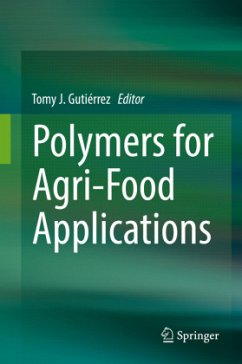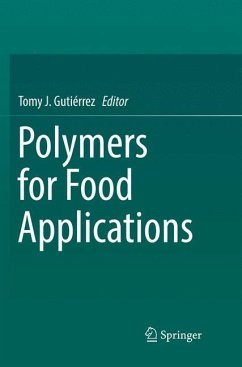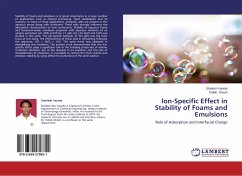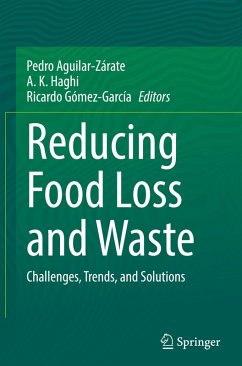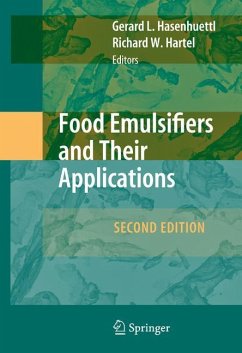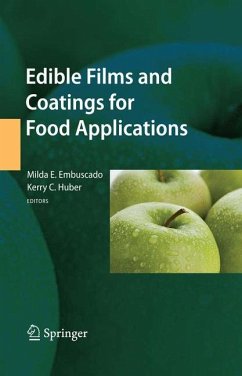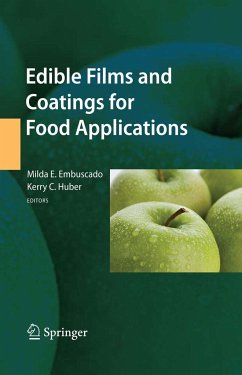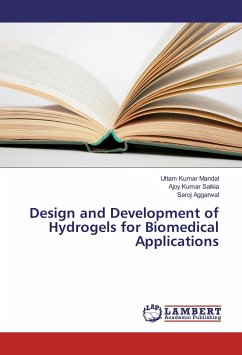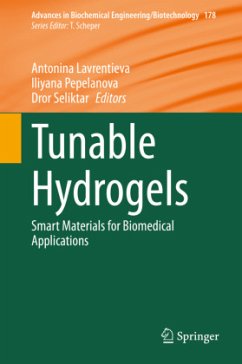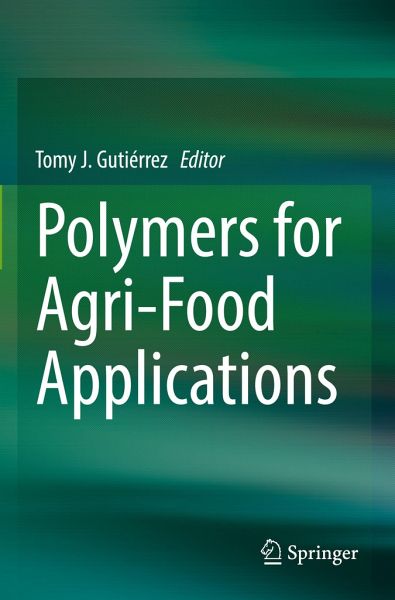
Polymers for Agri-Food Applications
Versandkostenfrei!
Versandfertig in 6-10 Tagen
113,99 €
inkl. MwSt.

PAYBACK Punkte
57 °P sammeln!
This book presents an exhaustive analysis of the trends in the development and use of natural and synthetic polymer systems aimed at sustainable agricultural production. The polymers have allowed the development of controlled and released systems of agrochemicals such as pesticides, fertilizers and phytohormones through micro and nanoencapsulated systems, which protect and stimulate the growth of crops at low costs and without damage to the environment. Hydrogel systems from natural and synthetic polymers have also had their place in the agricultural industry, since they allow to maintain the ...
This book presents an exhaustive analysis of the trends in the development and use of natural and synthetic polymer systems aimed at sustainable agricultural production. The polymers have allowed the development of controlled and released systems of agrochemicals such as pesticides, fertilizers and phytohormones through micro and nanoencapsulated systems, which protect and stimulate the growth of crops at low costs and without damage to the environment. Hydrogel systems from natural and synthetic polymers have also had their place in the agricultural industry, since they allow to maintain the humidity conditions of the crops for their correct development in drought times. Mulch films made of polymers have also become important in the control of weeds and pests in crops, as well as the use of edible coatings applied to fruits and vegetables during post-harvest, which reduce the losses of these perishable foods. Currently, the systems indicated, as well as others, are already used on a large scale. However, research studies in this area have been limited compared to other polymer applications. This book collects useful information for researchers, students and technologies related to the polymer technology and agri-food production. In this book, world-renowned researchers have participated, including associate editors of important journals, as well as researchers working in the area of research and development (R&D) of leading agri-food industries in the manufacture of agricultural inputs.





